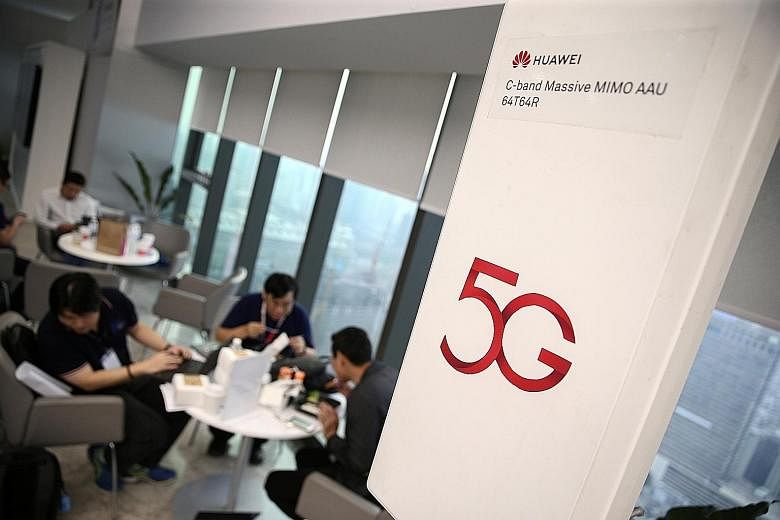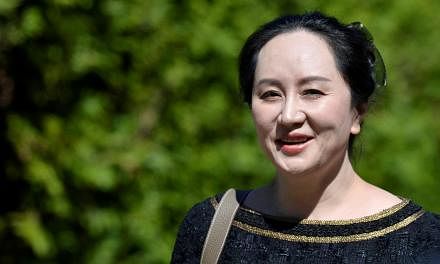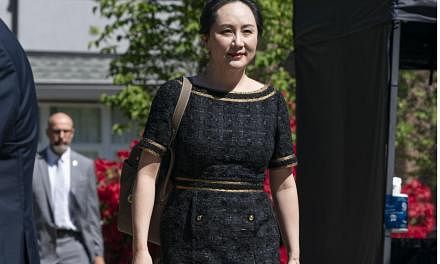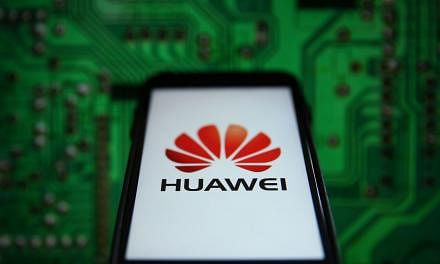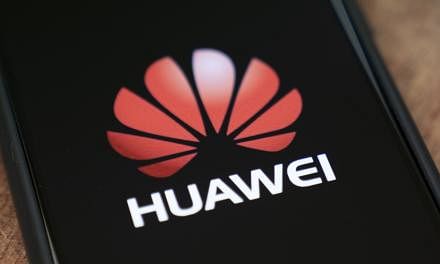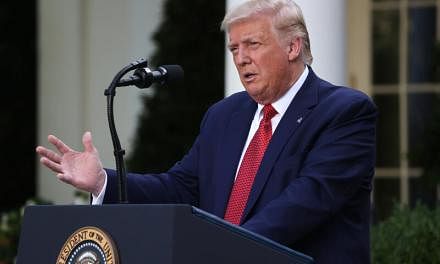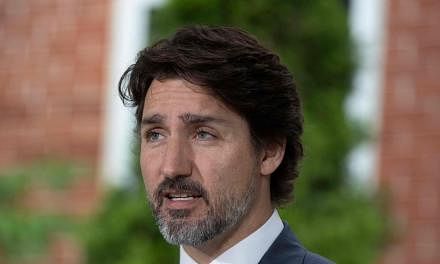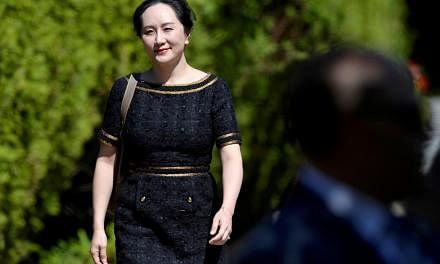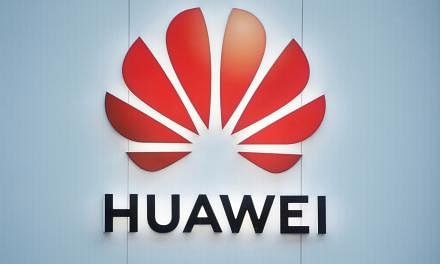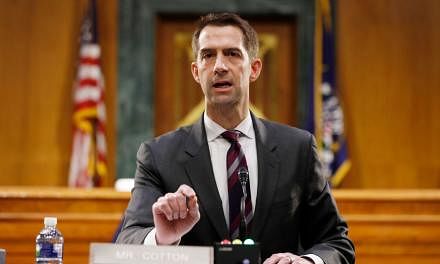WASHINGTON • US Secretary of State Mike Pompeo will voice concerns about the growing presence of China's Huawei Technologies in central Europe when he visits Hungary, Slovakia and Poland next week, a senior US official said, as Washington tries to bolster ties with a region it acknowledges it has neglected.
Mr Pompeo's visit will be the first by a US Secretary of State to Slovakia in two decades, while the last top American diplomat to travel to Hungary was Mrs Hillary Clinton in 2011.
In Hungary and Slovakia, Mr Pompeo will also discuss ways to bolster security relationships with both countries, including clinching deals on defence cooperation, a senior administration official said in a briefing to reporters about the trip.
Mr Pompeo will travel to Warsaw from Feb 12 to 14 for official talks and to attend a US conference on the Middle East as it tries to build a coalition against Iran and develop a peace plan between the Israelis and Palestinians.
"In Hungary, the Secretary will give particular focus to the role of China in central Europe, and express our concerns about the growing presence of Huawei in Hungary," said the official, speaking on condition of anonymity on Friday.
He will "urge regional leaders to heed the warnings of countries from Asia-Pacific who have found themselves in difficult straits as a result of working too closely with the Chinese", the official said.
Huawei Technologies plans to create a European logistics centre in Hungary and boost production capacity there this year. It has also offered to build a cyber security centre in Poland, where last month a Chinese employee of Huawei and a former Polish security official were arrested on spying charges.
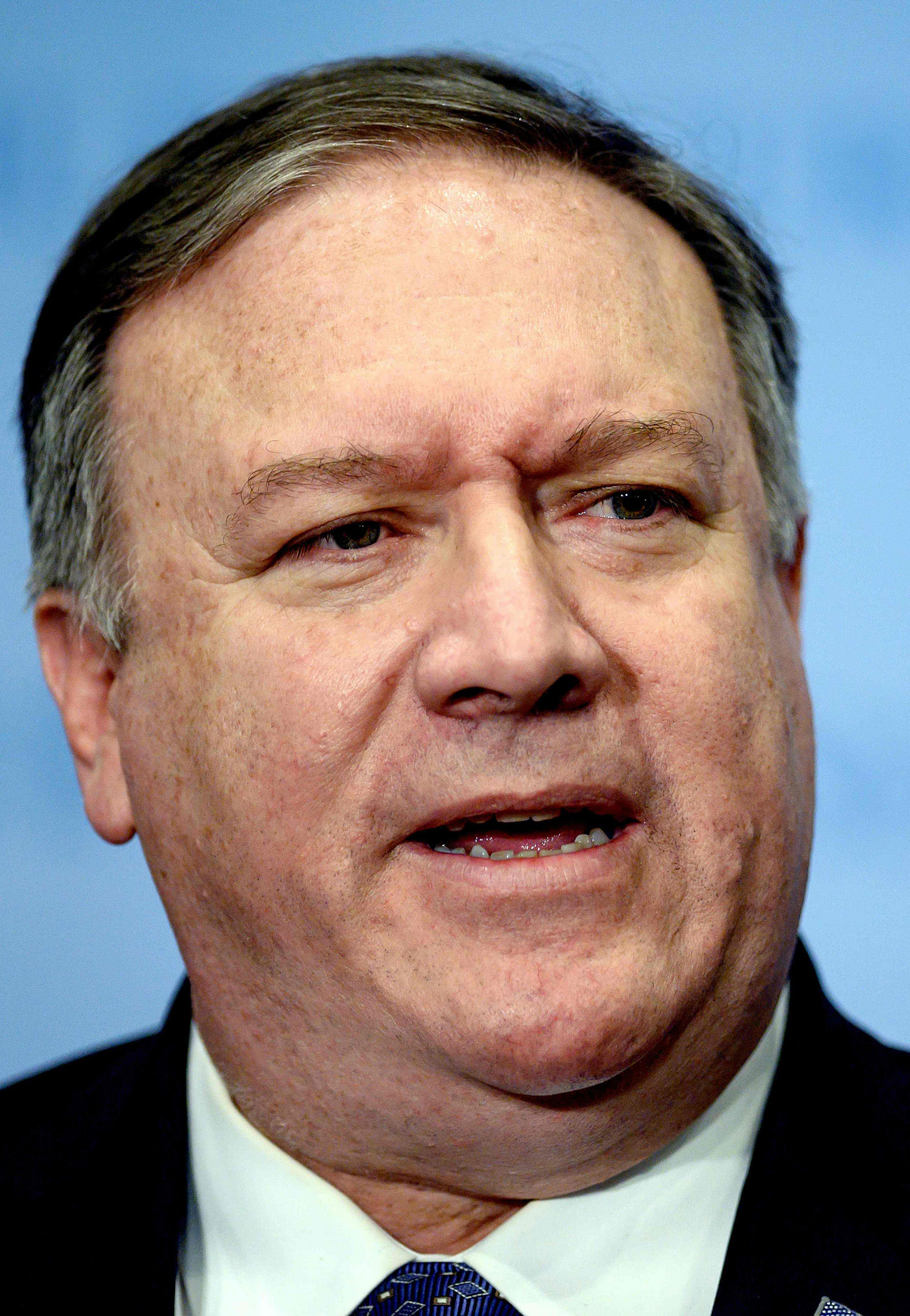
The US is trying to persuade countries to avoid Huawei, which is under scrutiny from Western intelligence agencies for its perceived ties to China's government and the possibility that its equipment could be used for espionage. Huawei has repeatedly denied engaging in intelligence work for any government.
The US was particularly worried about Huawei's influence in small eastern and central European countries, where it was easy for China to penetrate state systems, the US official said. He said China "sees relatively small countries with a recent history of communism, with significant pathways of corruption, that lend themselves more readily to state penetration in key sectors, and then they have a springboard to operate within EU fora".
China and Russia's growing influence in central Europe occurred in part because of a lack of robust US engagement in the past decade, the official said.
Meanwhile in Vilnius, the capital of Lithuania, the Chinese embassy on Friday denied what it termed "ridiculous" allegations of spying levelled by the Baltic euro-zone state as it joined other Western nations in expressing concerns about Chinese telecoms giant Huawei.
Earlier last week, two Lithuanian intelligence agencies condemned China for an "increasingly aggressive" spy campaign which it said included "attempts to recruit Lithuanian citizens".
The Chinese embassy said in a statement: "It is absurd and ridiculous for the Lithuanian intelligence and security services to rely on conjecture and imagination to make unfounded distortions."
It said it was "shocked and surprised" by the "totally unacceptable" statements made by Lithuanian intelligence, insisting that "China does not pose any security threat to Lithuania".
China has limited economic presence in Lithuania, a staunch US ally of 2.8 million people, but talks are under way regarding investments in the Baltic seaport of Klaipeda, according to local officials.
Occupied and annexed by Moscow during World War II, Lithuania broke free from the crumbling Soviet Union in 1991 and joined the European Union and Nato in 2004.
REUTERS, AGENCE FRANCE-PRESSE
